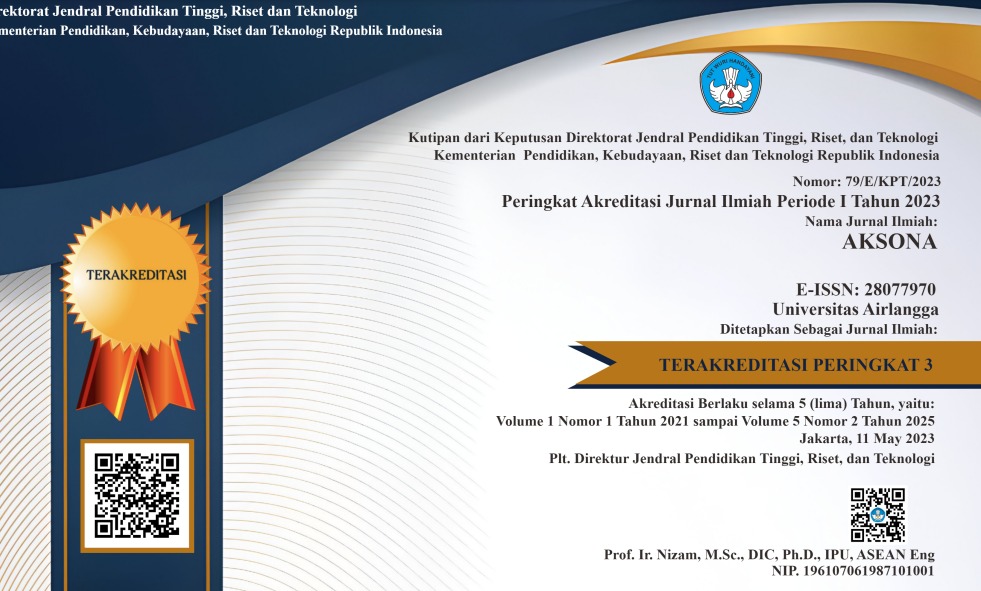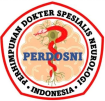Dyke-Davidoff-Masson Syndrome (DDMS) in Adult: A Rare Case in Rural Area
Downloads
Highlight:
- Dyke-Davidoff-Masson syndrome (DDMS) is an uncommon neurological disease defined as cerebral hemiatrophy with a contralateral motor deficit, facial asymmetry, and seizures.
- The proper diagnosis and early causative treatment significantly improve the outcome of thee disease.
ABSTRACT
Introduction: Dyke-Davidoff-Masson syndrome (DDMS) could be a rare neurological disorder characterized by cerebral hemiatrophy and an engine shortfall on the contralateral side of the body. Furthermore, facial asymmetry and seizures are common symptoms. Classic imaging findings in individuals with DDMS are ventriculomegaly, cerebral hypoplasia, paranasal sinus hyperpneumatization, and compensatory osseous broadening. The relationship between symptoms and imaging findings is used to determine DDMS. Case: A 46-year-old female patient arrived at the hospital with an inability to speak three days before admission, refused to eat or drink, and had a fever. She also had a slanted mouth and right-sided hemiparesis with a history of seizures. A firm boundary consolidation on the right pericardium was found on the chest X-ray, suggesting pulmonary TB. On a non-contrast head CT scan, thickening of the left hemicalvaria was found, accompanied by a widening of the left frontal-ethmoidal sinus, hyperpneumatization of the left mastoid air cell, and left cerebral hemiatrophy, all accompanied by left lateral ventricular dilatation. Conclusion: The proper diagnosis and early causative treatment significantly improve the outcome of the disease.
Al-Smair A, Abdel Hafez S, Saadeh A, Al-Ali A. An adult with Dyke–Davidoff–Masson syndrome: A case report. Cureus. 2022;14(3):e23315.
Verma R, Sahu R. Dyke-Davidoff-Masson syndrome. BMJ JCase Reports. 2012;2012:bcr2012006729.
Roy U, Panwar A, Mukherjee A, Biswas D. Adult presentation of Dyke-Davidoff-Masson syndrome: A case report. Case Rep Neurol. 2016;8(1):20–6.
Kumar Nv, Gugapriya T, Guru A, Nalina Kumari S. Dyke-Davidoff-Masson syndrome. Int J Appl Basic Med Res. 2016;6(1):57–9.
Deshmukh M, Verma Y, Narkeesh K, Arumugam N. Physiotherapy Management Improves Functional Recovery in Acquired Dyke-Davidoff Masson syndrome. Int J Physiother Res. 2017;5(3):2108–12.
Gökçe E, Beyhan M, Sade R. Radiological imaging findings of Dyke–Davidoff–Masson syndrome. Acta Neurol Belg. 2017;117(4):885–93.
Davis AG, Rohlwink UK, Proust A, Figaji AA, Wilkinson RJ. The pathogenesis of tuberculous meningitis. J Leukoc Biol. 2019;105(2):267–80.
Zaharie S-D, Franken DJ, van der Kuip M, van Elsland S, de Bakker BS, Hagoort J, et al. The immunological architecture of granulomatous inflammation in central nervous system tuberculosis. Tuberculosis. 2020;125:102016.
Cresswell F V, Davis AG, Sharma K, Basu Roy R, Ganiem AR, Kagimu E, et al. Recent Developments in Tuberculous Meningitis Pathogenesis and Diagnostics. Wellcome Open Res. 2021;4:164.
Slane V, Unakal C. Tuberculous meningitis. In: StatPearls. Treasure Island (FL): StatPearls; 2022.
Behera MR, Patnaik S, Mohanty AK. Dyke-Davidoff-Masson syndrome. J Neurosci Rural Pract. 2012;3(3):411–3.
Piro E, Piccione M, Marrone G, Giuffrè M, Corsello G. Dyke-Davidoff-Masson syndrome: case report of fetal unilateral ventriculomegaly and hypoplastic left middle cerebral artery. Ital J Pediatr. 2013;39(1):32.
Abdul Rashid AM, Md Noh MSF. Dyke-Davidoff-Masson syndrome: A case report. BMC Neurol. 2018;18(1):76.
Nahid P, Dorman SE, Alipanah N, Barry PM, Brozek JL, Cattamanchi A, et al. Executive summary: Official American thoracic society/centers for disease control and prevention/infectious diseases society of America clinical practice guidelines: Treatment of drug-susceptible tuberculosis. Clin Infect Dis. 2016 ;63(7):853–67.
Wang W, Gao J, Liu J, Qi J, Zhang Q. Clinical efficacy of dexamethasone in the treatment of patients with tuberculous meningitis: A meta-analysis. Teekaraman Y, editor. Contrast Media Mol Imaging. 2022 ;2022:1–9.
Hamid M, Cherradi S, Satte A, Bourazza A. Dyke-Davidoff-Masson syndrome: A case report with a literature review. Radiol Case Reports. 2022;17(8):2616–8.
Thakkar PA, Dave RH. Dyke-Davidoff-Masson syndrome: A rare cause of cerebral hemiatrophy in children. J Pediatr Neurosci. 2016;11(3):252–4.
Copyright (c) 2023 Indra Pramanasari

This work is licensed under a Creative Commons Attribution-ShareAlike 4.0 International License.





















